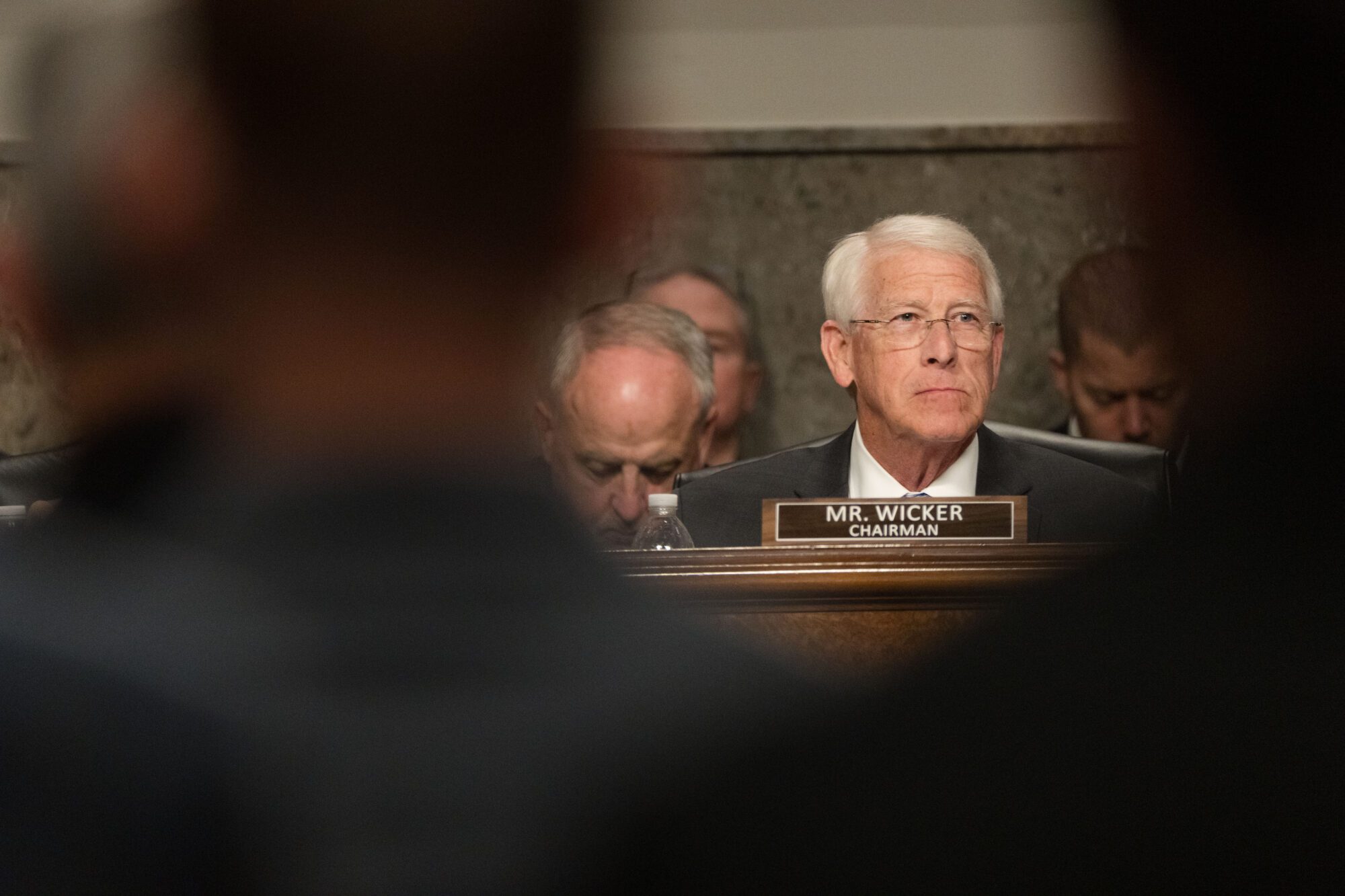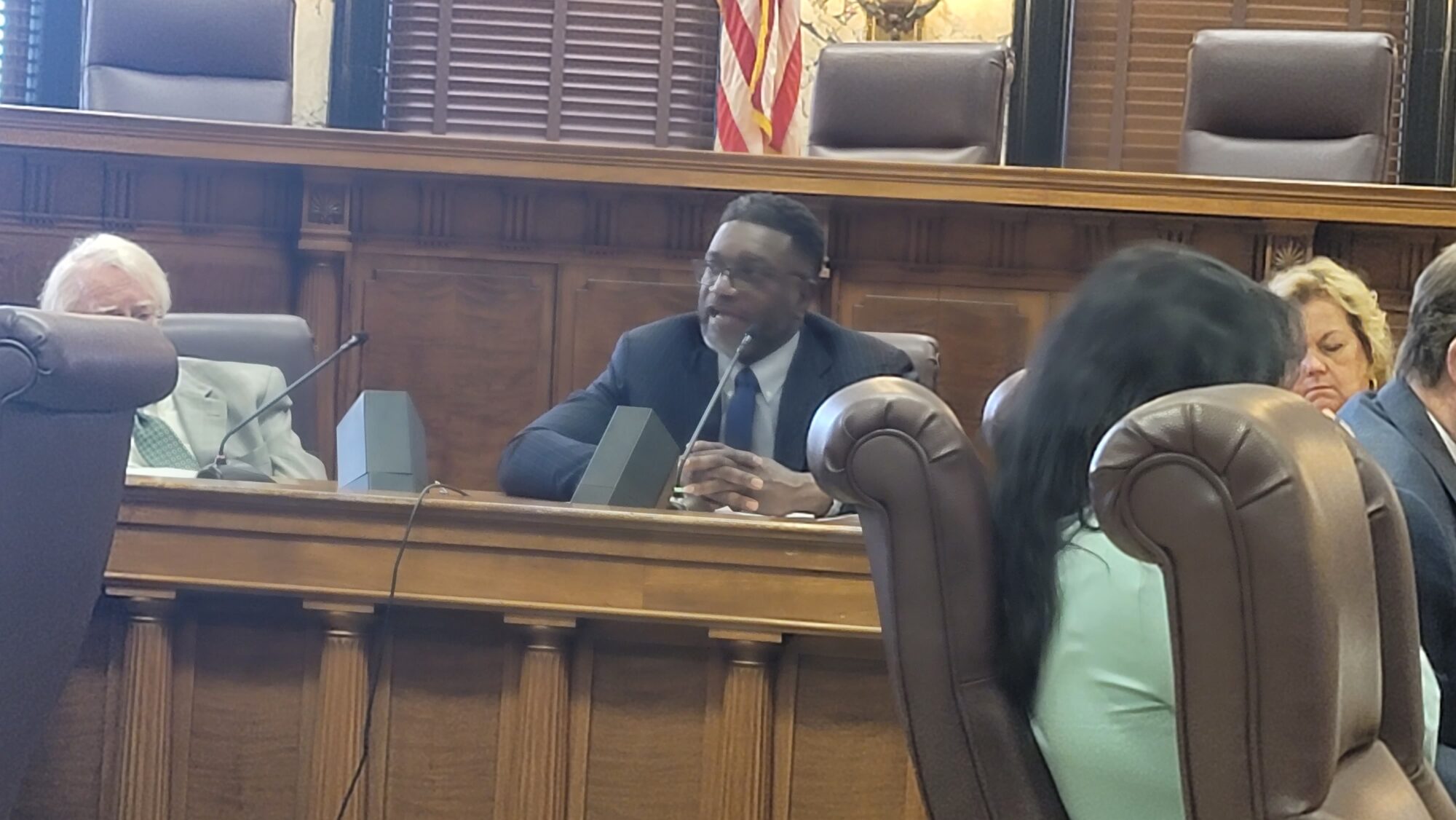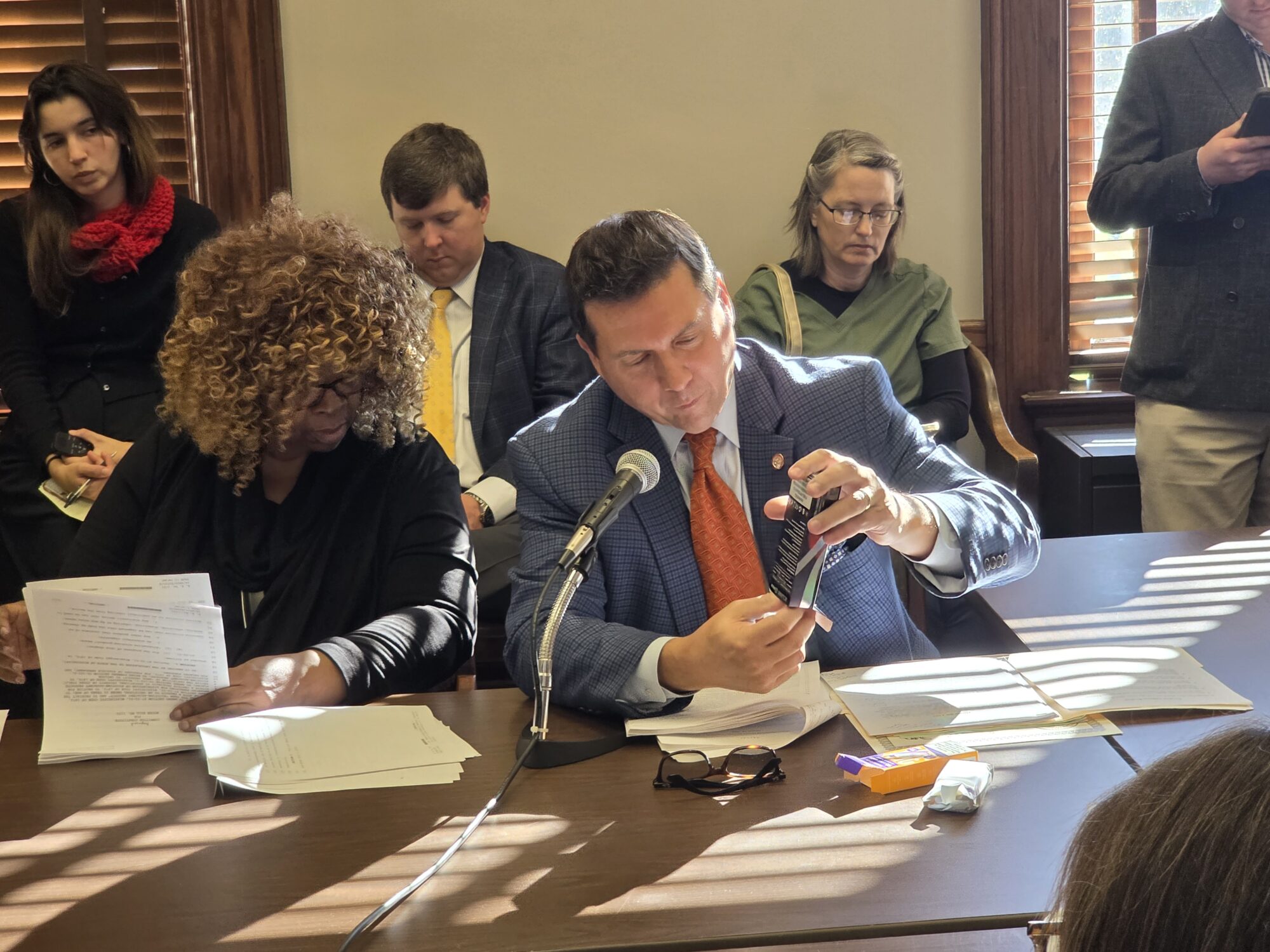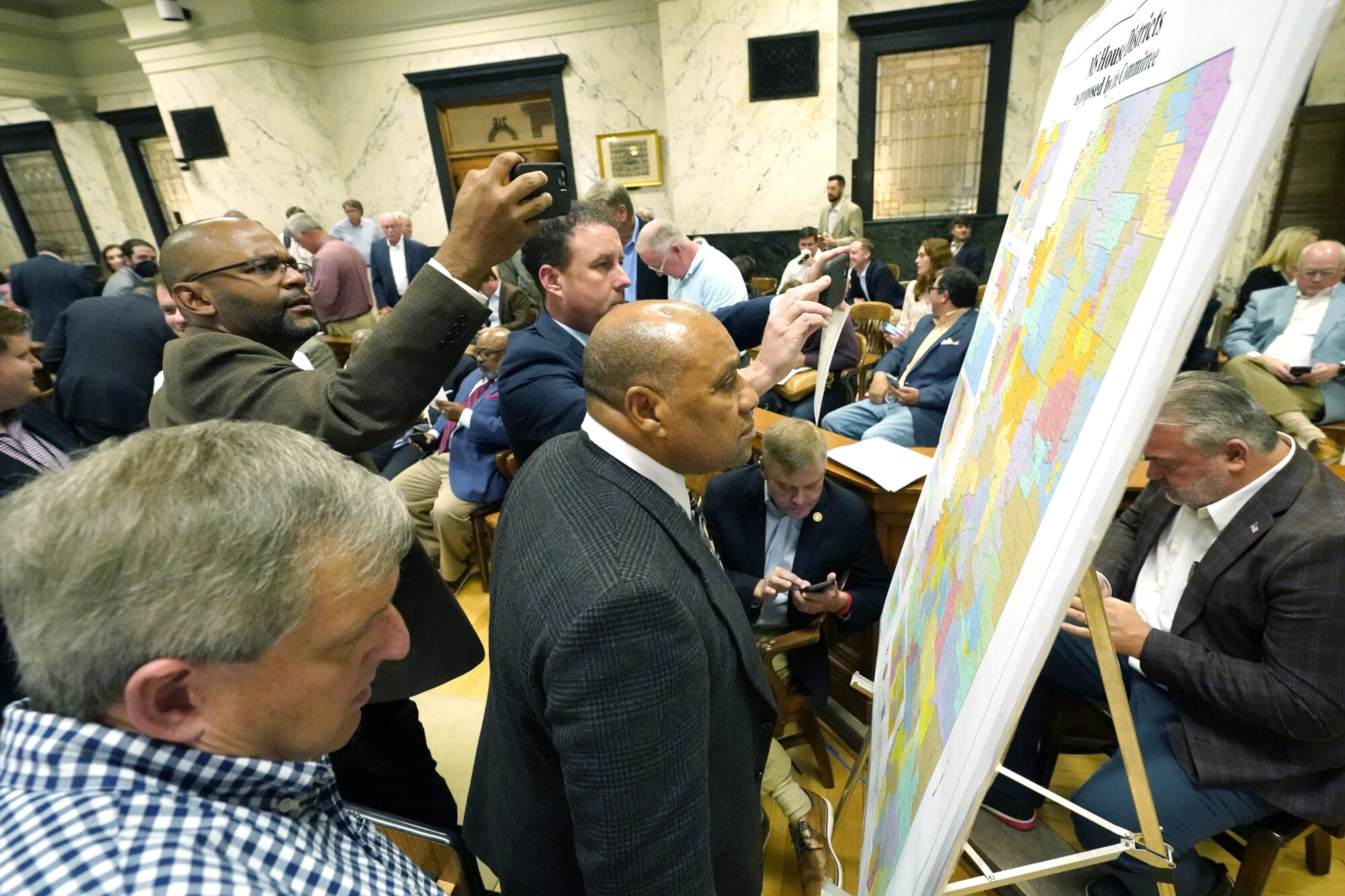
Lawmakers from both chambers review the House redistricting map following a meeting of the House Legislative Reapportionment Committee, Sunday, March 27, 2022, at the Mississippi Capitol in Jackson. (AP Photo/Rogelio V. Solis)
- A trial before a three-judge panel began this week to hear the NAACP’s claim that lawmakers diluted black voting strength when adopting the 2022 Senate and House District maps.
Republicans in the Mississippi Legislature have only controlled the legislative redistricting process twice since Reconstruction, after the 2010 and 2020 U.S. Censuses.
The first time in 2012, the new Republican majority was thrust into the fray after the Democratic-controlled House and Republican-controlled Senate failed to reach an agreement on a redistricting plan during the 2011 session. The NAACP filed a legal challenge, attempting to force the courts to act where lawmakers had not, as the Republican Senate refused to adopt the Democratic House’s map. However, when the dust settled, the U.S. Supreme Court affirmed a lower court’s ruling allowing the old districts to be used in the 2011 legislative elections.
During the 2012 session – the first under a Republican majority in both chambers since the late 1800s – lawmakers adopted a legislative redistricting plan that was approved by the U.S. Department of Justice that September.
Fast forward to 2022, and the NAACP – by-and-large supportive of Democratic candidates – was back attempting to sway Mississippi legislative redistricting once again, this time after a supermajority Republican House and Senate adopted new maps reflecting the population shift that had occurred in the state over the past decade. That shift – some 65,000 persons moving out of the Delta region – resulted in lawmakers adding one Senate District where the black voting age population, or BVAP, was 50% or more of the total district population, going from 14 to 15 Senate Districts. House Districts with a BVAP of 50% or higher remained at 42 districts.
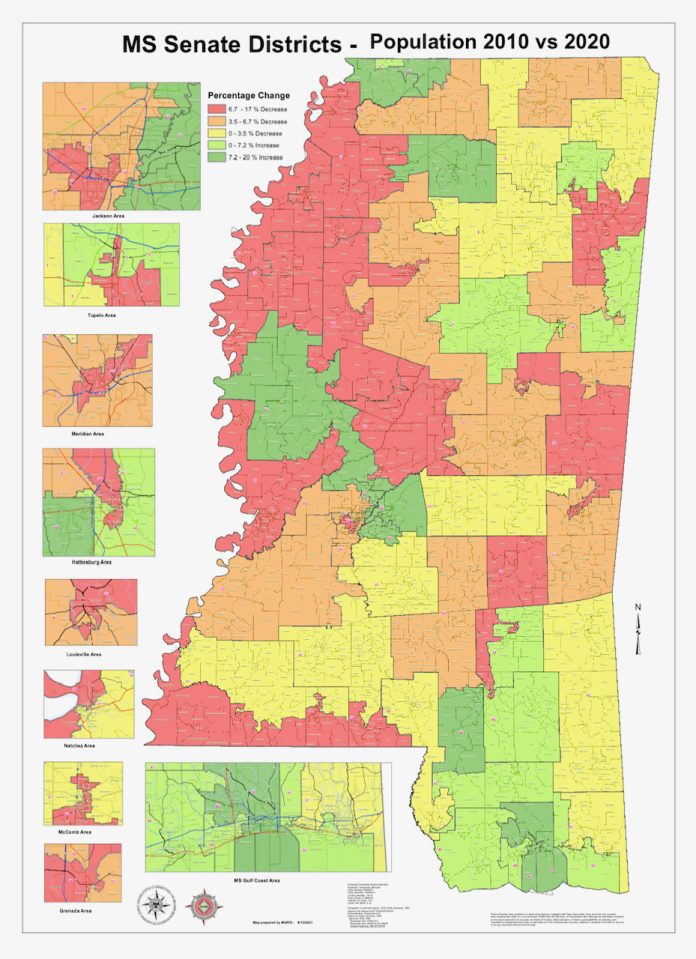
During the 2022 debate on the legislative redistricting maps, it was noted that the ideal Senate District population was 56,948 using the 2020 Census data, while that number for a House District was 24,273, using the same Census data. The Senate Districts with the highest deviation, or change in population, were noted as Senate District 1: +13,226 or +23.22%, Senate District 49: +11,039 or +19.38%, and Senate District 9: +9,903 or +17.39%. The highest deviations in the House were in House District 73: +11,945 or +49.21%, House District 24: +8,057 or +33.19%, and House District 28: +7,560 or +31.15%.
Shifts in population resulted in the creation of new House Districts in DeSoto and Harrison counties while in the Senate, two districts were combined, and a new Senate District was created to encompass parts of Rankin and Smith counties.
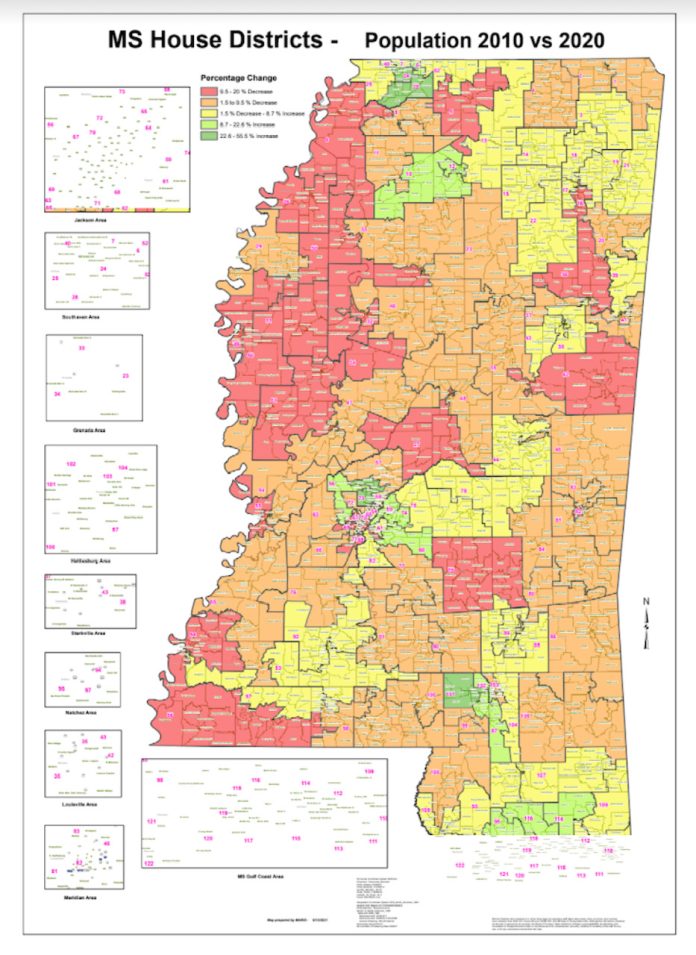
Five Democrats voted with the Republican majority in the House to approve their maps and all but two Democrats in the Senate voted to approve their new boundaries.
Yet, despite all of the wrangling and the bipartisan vote to approve the redistricting plan, the NAACP filed a lawsuit in December 2022 to challenge the districts – nearly 9 months after the vote and just weeks before the start of qualifying for the 2023 election cycle.
That lawsuit filed against the three-person Mississippi State Board of Election Commissioners, which includes Governor Tate Reeves, Attorney General Lynn Fitch, and Secretary of State Michael Watson, claims the 2022 maps illegally dilute the voting strength of black Mississippians and improperly use voters’ race to achieve partisan goals and protect incumbent politicians.
“The new maps are only the latest in a long and unfortunate history of manipulating the districting process to undermine Black voters’ political power. Because they violate federal law and the U.S. Constitution, Mississippi’s new districting maps should be enjoined, and lawful maps that fairly represent Black voters and all Mississippians should be ordered into place,” attorneys for the plaintiffs argue in their filing.
The NAACP is joined by several residents in their complaint. The group is being represented by the ACLU of Mississippi, the Mississippi Center for Justice, and others.
A trial in the matter began this week in the United States District Court for the Southern District of Mississippi – 14 months after the initial filing and nearly four months since the November General Election. The three-judge panel consists of Judge Daniel Jordan III, District Judge Halil Ozerden, and Judge Leslie Southwick.
As reported by the Associated Press, Tommie Cardin, one of the attorneys representing state officials, said voter behavior in Mississippi is now driven by political party affiliation, not race.
Voter demographics often point to higher populations of white voters backing Republican candidates while higher populations of black voters lean Democrat.
“The days of voter suppression and intimidation are, thankfully, behind us,” Cardin was quoted as saying by the AP.
However, the NAACP argues that if the maps were not racially gerrymandered, as they allege, up to four more Senate Districts and three more House Districts with a BVAP of 50% or more could have been drawn.
The proceedings could last up to two weeks. There has been no indication of when the judicial panel will make their decision.

